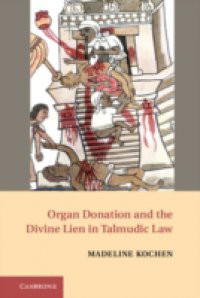This book offers a new theory of property and distributive justice derived from Talmudic law, illustrated by a case study involving the sale of organs for transplant. Although organ donation did not exist in late antiquity, this book posits a new way, drawn from the Talmud, to conceive of this modern means of giving to others. Our common understanding of organ transfers as either a gift or sale is trapped in a dichotomy that is conceptually and philosophically limiting. Drawing on Maussian gift theory, this book suggests a different legal and cultural meaning for this property transfer. It introduces the concept of the 'divine lien', an obligation to others in need built into the definition of all property ownership. Rather than a gift or sale, organ transfer is shown to exemplify an owner's voluntary recognition and fulfilment of this latent property obligation.

